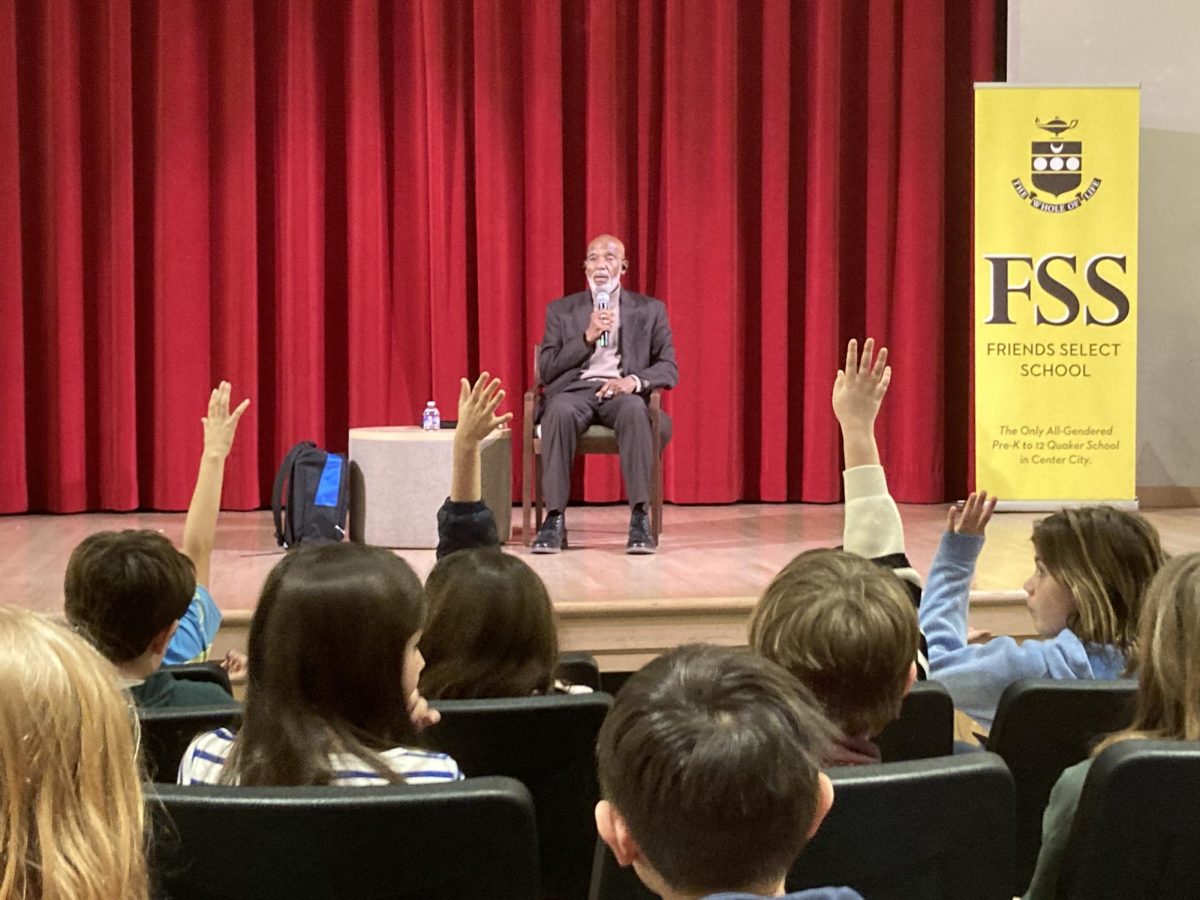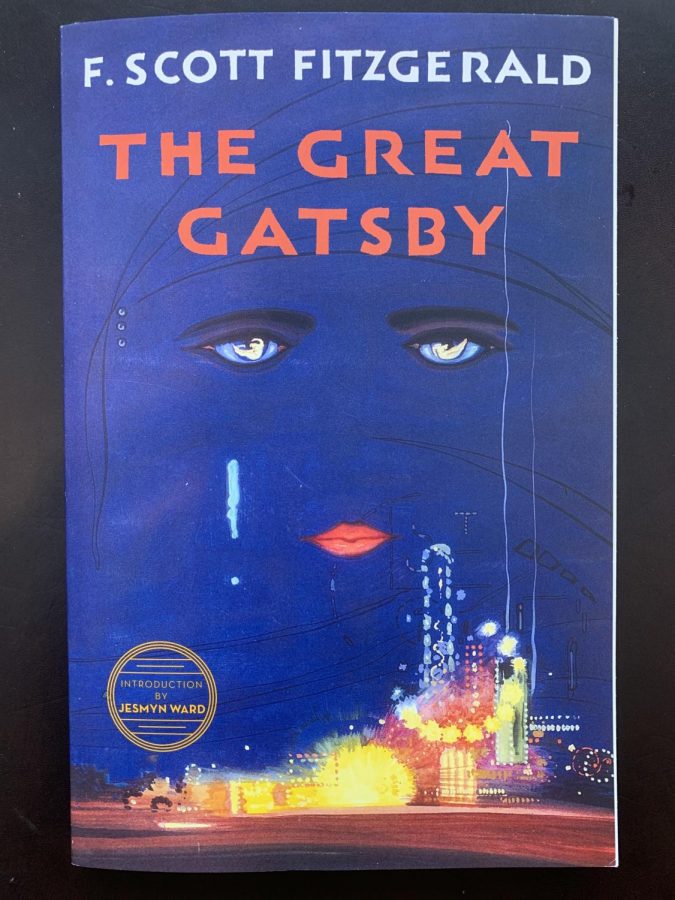Two Opinions: Did Gatsby Love Daisy?
Yes – Peter
In The Great Gatsby by F. Scott Fitzgerald, the mysterious and nouveau riche Jay Gatsby desperately attempts to rekindle his past romance with Daisy Buchanan, a beautiful and charming socialite, on Long Island at the peak of the roaring twenties. Although Daisy accepts Gatsby’s advances and temporarily reignites their relationship, she refuses to leave her upper-class husband Tom. Eventually, Fitzgerald reveals that Gatsby, who grew up as a poor farmer’s son in North Dakota, constructed his entire identity and personality around returning to Daisy after meeting her as a young man before leaving to fight in World War I. This classic American novel tells the story of a man who loses his sense of self after falling deeply in love for all the wrong reasons. Seduced by Daisy’s refined manner and extravagant lifestyle, Gatsby affixes himself to her like a virus.
The reader’s impression of both Gatsby and Daisy is formed through the eyes of the novel’s narrator, Nick Carraway. Nick, a reclusive bond trader and Daisy’s cousin, editorializes frequently and criticizes the profligate and selfish nature of the other characters. Nick does express skepticism about Gatsby’s feelings for Daisy. However, he himself admits that his account of Gatsby is highly biased: “[he] represented everything for which I have an unaffected scorn” (2). Additionally, Nick is a highly unreliable narrator: indeed, he begins the novel by declaring that he is “inclined to reserve all judgments” (1) before spewing nine chapters of conclusions about others. Nick’s predictions about Gatsby’s and Daisy’s feelings cannot be trusted; only the basic events of the story that he sees in real-time can be taken as fact.
According to the Buchanans’ friend Jordan, Gatsby and Daisy met in Louisville in 1917 when Gatsby was an enlisted soldier and Daisy was 18 years old. During this time, the two saw each other frequently — Jordan notes that although Daisy made dates with many young men, she held special affection for Gatsby, who “looked at her the way all young girls want to be looked at sometimes” (75). On one of these dates, the two shared a kiss, which Nick alleges “forever wed [Gatsby’s] unutterable visions to her perishable breath” (111). Shortly after, Gatsby was called to war, and Daisy soon married Tom. However, once Gatsby returns to the United States, he devotes his life to winning Daisy back. Through shady business dealings, he earns a small fortune, with which he purchases a massive mansion across the bay from the Buchanan estate. At night, Gatsby wanders out to the shore and stretches his arms in the direction of a green light at the end of Daisy’s dock. Eventually, through Nick, Gatsby meets Daisy again, and they begin to visit each other frequently. His actions are deranged, desperate, and possibly mercenary, but his devotion to reclaiming this past romance is unequivocally ‘love’.
After a tense and confrontational evening out in Manhattan with Tom and Jordan, Daisy and Gatsby drive back together to Long Island in Gatsby’s car. Behind the wheel, Daisy strikes and kills a woman standing in the road. Before this fact is revealed, though, Gatsby assumes responsibility for the manslaughter in order to protect Daisy. When Nick asks Gatsby if Daisy was driving, he dismissively says: “yes, but of course I’ll say I was” (143). Gatsby proceeds to fervently excuse Daisy’s recklessness. The next day, the widower of the car accident’s victim murders Gatsby. Tragically, Gatsby feels so obligated to protect Daisy that he literally takes the bullet for her. Although Gatsby may love Daisy more for what she represents than for who she is, this act of effectively sacrificing his own life to save hers can only be characterized as love.
Daisy Buchanan’s character takes direct inspiration from the 20th-century socialite Ginevra King, who dated Fitzgerald during his time at Princeton. After meeting at a sledding party, King and Fitzgerald quickly developed a passionate correspondence; in one letter, King confessed that she was “madly in love with him.” However, due to Fitzgerald’s lower social status, King’s parents forbade the relationship: her father reportedly told Fitzgerald that “poor boys shouldn’t think of marrying rich girls.” Despite intense affection, these challenges eventually dissolved the relationship. According to one friend, “Fitzgerald was so smitten by King that for years he could not think of her without tears coming to his eyes.” By all accounts, the failed romance was a classic example of forbidden love. Those who believe that Gatsby never truly loved Daisy argue that he was more obsessed with the promise of status she provided. However, Fitzgerald’s own life, which serves as the basis for the story, proves that such a love can exist.
Fitzgerald’s three most renowned works — Gatsby, The Beautiful and Damned, and This Side of Paradise — are bound together by themes of materialism and yearning for ultimately unattainable dreams. In each of these novels, massive fortunes and beautiful socialites stand as representations of the American dream. For this reason, it may be impossible to argue that Gatsby did or did not love Daisy Buchanan; they aren’t real people. Rather than real humans with human emotions and free will, Gatsby and Daisy are pawns in an allegory of the greed and excess of the 1920s in the United States. After all, The Great Gatsby is just a book. Its characters do not exist beyond the 180 page description that Fitzgerald provides.
Gatsby might love Daisy for all the wrong reasons, but that doesn’t mean he doesn’t love her. His manic desire to conjoin his existence with Daisy’s certainly doesn’t fit the idyllic and reciprocal conception of “true love” that exists in perfect endings, but this is part of the brilliance of The Great Gatsby: it is brutally and uniquely honest about the fact that people, their motivations, and their relationships are deeply flawed. Gatsby’s love for Daisy is deeply flawed: it drives him insane, uproots his life, and literally brings him to death. However, love is the only way in which anyone could describe the unshakeable affection and obligation to protect that Gatsby feels for Daisy.
No – Margot
The Great Gatsby by F. Scott Fitzgerald tells the story of the hardworking and driven Jay Gatsby as he claws up the ladder of social class during the summer of 1922. As it is revealed throughout the novel, the sole purpose of his efforts is to gain the affection of his past lover Daisy Buchanan, whom he deserted five years earlier to go to war. Despite Gatsby’s “romantic readiness” (2), as narrator Nick Carraway puts it, he subtly shows that his love for Daisy is never genuine. Gatsby, in fact, is never capable of loving her at all; he was born with a life and status too drastically different from hers to ever really connect with her in a true, romantic way. Rather, he loved the idea of Daisy and what she stood for.
In chapter 6 of the novel, Nick narrates the story in which Gatsby rose from being a poor teenage son of farmers in North Dakota to working for self-made millionaire Dan Cody on a yacht. Gatsby goes through an extreme identity change in this chapter, changing his name from James Gatz to Jay Gatsby and “[springing] from the Platonic conception of himself” as the “son of God” (98). In this scene, he falls into and climbs out of a lake with a new sense of self and burning passion to become rich. Although this identity transformation occurs before he has even met Daisy, it shows the moment that essentially defines the sole motive of his life, and it is clearly not finding love.
Later in this chapter, Nick tells the story of Gatsby and Daisy’s first kiss, which demonstrates Gatsby’s subtle understanding of the superficiality of their relationship. “He knew that when he kissed this girl, and forever wed his unutterable visions to her perishable breath, his mind would never romp again like the mind of God. So he waited, listening for a moment longer to the tuning-fork that had been struck upon a star. Then he kissed her” (111). Gatsby feels that the rich and classy persona he attempts to embody should love someone like Daisy, a high-class, attractive, and intriguing young woman. But that’s just the issue – it’s solely the idea of her that he chases so fervently. He even understands that kissing her is “[wedding] his unutterable visions to her” and limiting the expansiveness of his mind and dreams. This isn’t love; it’s responsibility, following expectations, and doing what it takes to achieve a particular identity of his own. Even Gatsby, who is so caught up in his infatuation, has to take a moment before he kisses her, realizing how inevitably painful this action is.
In the next chapter, Gatsby, Daisy, Nick, and a few others have a dinner party at which Gatsby notes the following: “ ‘Her voice is full of money’ ” (120). Nick then realizes: “That was it. I’d never understood before. It was full of money–that was the inexhaustible charm that rose and fell in it, the jingle of it, the cymbals’ song of it… High in a white palace the king’s daughter, the golden girl…” (120). Despite Gatsby’s attempt to play the role of her secret, long-lost love, even he can’t help but notice how much her entire persona exudes money. Though he constantly pretends that he sees past this and chooses her for her, this passage reveals that his teenage transformation and quest for wealth never faded, and they continue to define the course of his entire life. Her classy, flashy image is exactly what a ‘man like him’ should want, so he picks her and rolls with it, struggling with the internal turmoil of understanding that he does not and will never love her authentically.
Lastly, when Nick confronts Gatsby for trying (and failing) to impossibly recreate their past relationship five years prior, Gatsby is stunned: ” ‘Can’t repeat the past?’ he cried incredulously. Why of course you can!’ He looked around him wildly, as if the past were lurking here in the shadow of his house, just out of reach of his hand” (110). His obsession with “the past” is very telling of how superficial his love is — he can’t even create new memories and connections with Daisy. Instead, he grasps onto the precious time he once spent with her years ago hoping that this is enough, but inwardly knowing that it never will be. Furthermore, his oblivion and unwillingness to confront the truth show that deep down, he understands that loving her and manufacturing a relationship are just not possible for him. However, without her clutching the wealth and status he infinitely seeks, he has no goal to chase, and feels completely lost; to compensate, he just chases after something that isn’t there in fear of finding himself purposeless and insignificant.
Daisy is solely a manifestation of Gatsby’s life goal, and can be nothing more — he is incapable of really loving her because, as he decides as a teenager, class ascension and wealth obtention are the only things he truly ever seeks. Daisy presents as a convenient physical embodiment of these ideas, so Gatsby settles for a meretricious infatuation to consume his time, efforts, and thoughts, never allowing himself to even think that she isn’t the perfect woman for him.
























Caedon • May 12, 2022 at 8:41 PM
I gotta agree with Margot, while Gatsby tried to convince himself that he truly loved Daisy he only ever saw her as what he had hoped to achieve himself, to be an accepted member of the upper class of 1920s American society. I see reflections between the Gatsby/Daisy relationship and the relationship of Fitzgerald and his “Golden girl” who he convinced himself was the girl of his dreams which he could never win the hand of.
Hannah Whitaker • Dec 8, 2021 at 9:53 AM
I agree with Margot! Gatsby was in love with the version of Daisy that he created in his head, he doesn’t l0ve her.
Charbel • Jan 3, 2022 at 6:32 AM
I think both options are worth a thought even though they contradict each other in some ways, but after a couple of minutes of thinking to myself, I agree with both. Even though gatsby might not truly love daisy, in the end, most of what he did was for Daisy. Even though some people might not look at their love as genuine, I still think there is love between them, whether genuine or not. In the end, it all comes down to how you define love. Most people look at love as intense emotions\affection towards one another, and it is clearly shown that Gatsby now if you tell me there is no affection between Gatsby and Daisy then read the novel first